Click the link underneath and answer this questionnaire about your online habits. The test was made by Finnish students and answered by students from the rest of the countries.
Access the survey here: being online
RESULTS OF THE SURVEY
We received altogether 220 answers to our survey. Here you can see how the answers were divided between gender and home country:
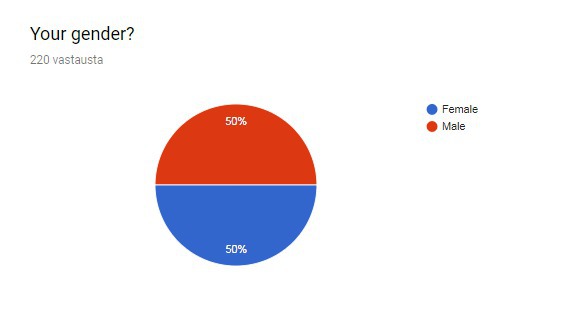
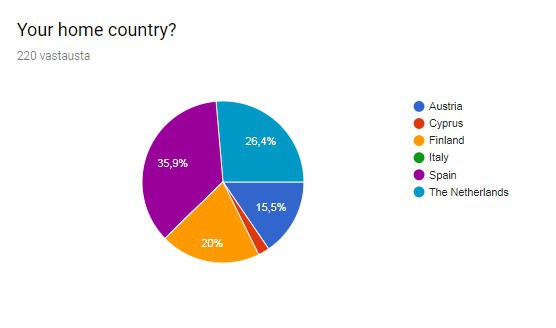
As you can see, the gender was presented equally, but there are some differences between the amounts of answers from different countries.
The overview of the answers from all the respondents for the questions is the following:
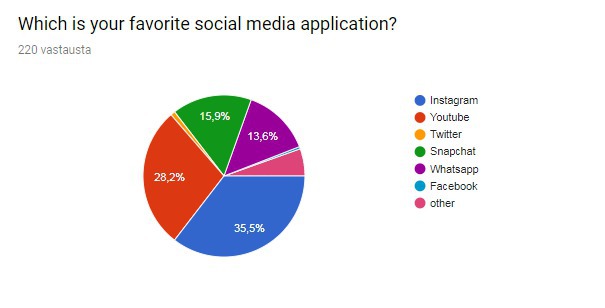
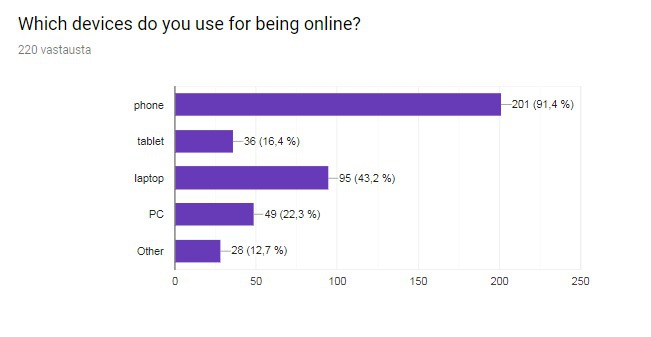
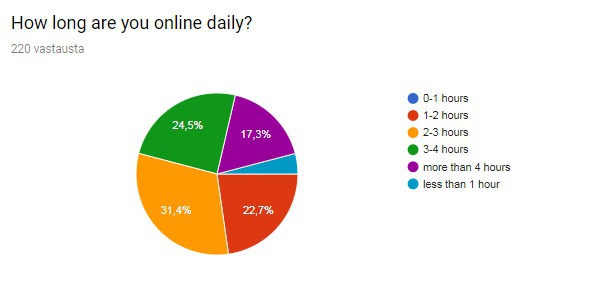
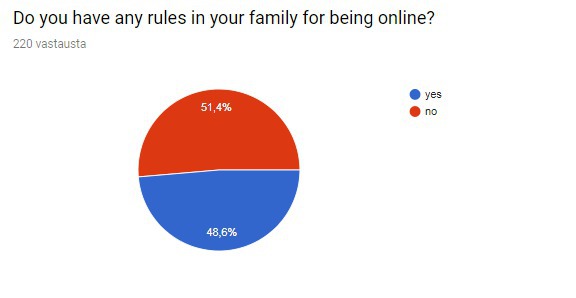
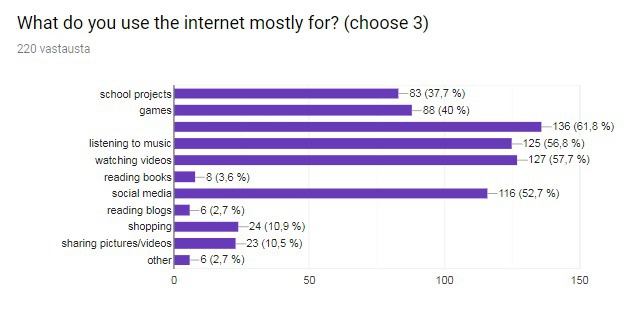
The third and most common answer is chatting and connecting with friends.

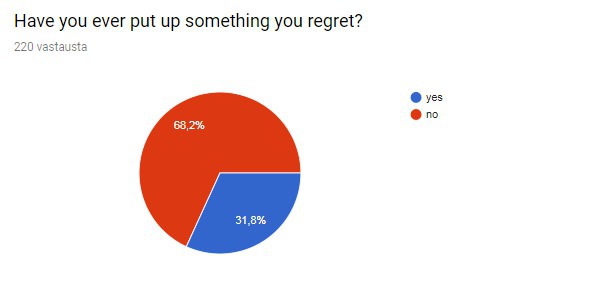
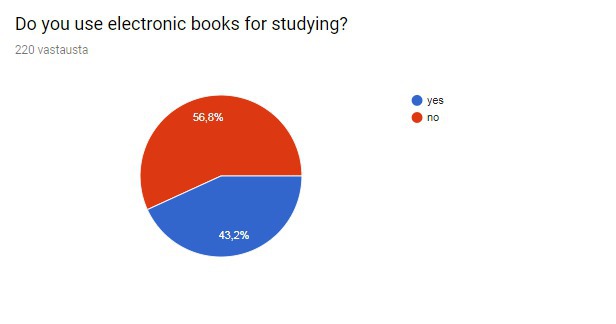
The results indicate that the most common applications used are Instagram and Youtube. However, there are some differences between the respondents in different countries:
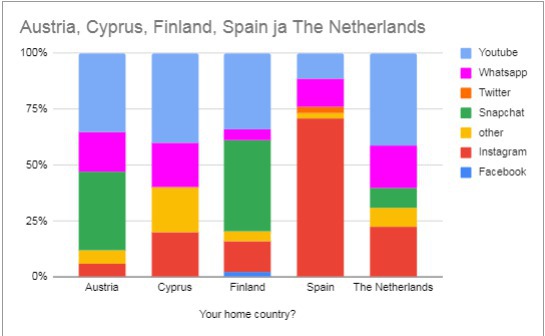
The Spanish youngsters use a lot of Instagram whereas the Finnish use a lot of Snapchat.
Phone is by far the most used device in all the countries.
The time spent online also varies between the countries:
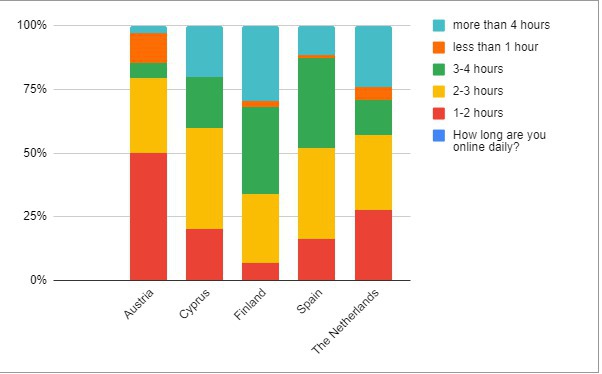
There seems to be more "heavy" users in Finland than in the other countries (more than 50% use three hours or more daily) whereas the Austrian students are online the least. More than 75% of the students are online less than three hours daily.
There are also differenes in the amount of students who have faced bullying between the countries. In Finland about 30% and in Cyprus about 20% have faced bullying whereas the Austrian student report no bullying in this survey.
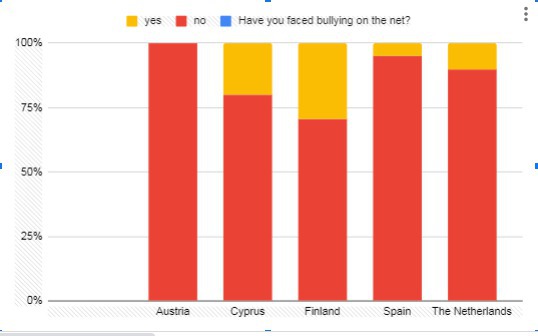
The amount of students having rules for being online also vary between the countries. In The netherlands and in Austria, the majority of students have rules. In Spain and in Finland the majority of the students do not have rules inside their families. Does this explain the time being online or maybe even the bullying faced online to some extent?
Family rules for being online:
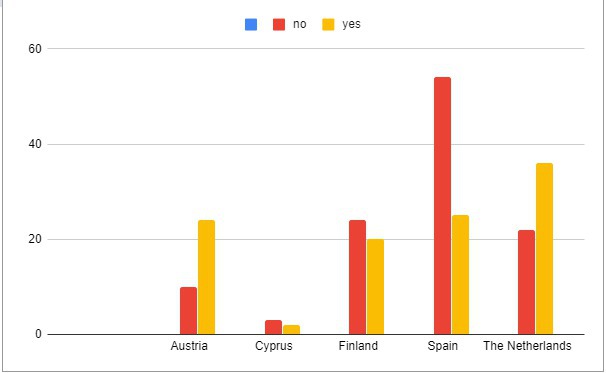
Also the use of electronic books for studying differs between the countries:
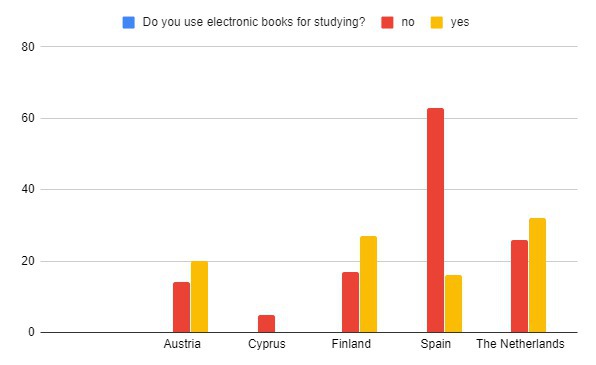
In Austria, Finland and the Netherlands, more than have of the students use electronic books for studying, whereas in Spain and Cyprus the majority have not used them.